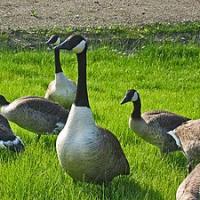讯息: 7
语言: English
ianste_phenson (显示个人资料) 2019年5月28日下午12:27:57
I set off on my Esperanto adventure only very recently, which is why I'm posting in English. My problem is this:
I'm reading through Dr Zamenhof's various publications, and in "Fundamenta krestomatio de la lingvo Esperanto" (http://www.gutenberg.org/files/8224/8224-h/8224-h....) there is the indisputable rule "Ĉiuj prepozicioj postulas la nominativon" (VI - Artikoloj pri Esperanto; plena gramatiko de Esperanto; no. 8); further on in the book there are example sentences, including "mi disŝiris la leteron kaj disĵetis ĝiajn pecetojn en ĉiujn angulojn de la ĉambro" (I - Ekzercoj; § 31).
My question is this: if all prepositions govern the nominative case, shouldn't the second half of that example sentence read "disĵetis ĝiajn pecetojn en ĉiuj anguloj" and NOT "en ĉiujn angulojn" as it is given in the text?
I understand Esperanto is renowned for not having any exceptions to rules, but are there any cases at all when a preposition should be followed by the accusative case?
Many thanks in advance for your answers.
EDIT: The "anecdotes" section of the same book also contains "mi ja povas vin kaŝi en mian poŝon! – Vi povas, trankvile dris tiu, kaj tam en via poŝo estos pli de saĝo, ol en la kapo", so I can only assume it has to do with movement vs. location similar to "in/into" in English or "auf den Platz/auf dem Platz" in German.
That would explain "en ĉiujn angulojn" ("into the corner" i.e. movement), so I assume "la percetoj de la letero kuŝas en ĉiuj anguloj de la ĉambro" (i.e. location) would also be correct?
sergejm (显示个人资料) 2019年5月28日下午1:47:50
Se vi volas indiki lokon, uzu "en ĉiuj anguloj" - "in all angles"
ianste_phenson (显示个人资料) 2019年5月28日下午1:52:50
sergejm:Se vi volas indiki direkton, uzu "en ĉiujn angulojn" - "into all angles".Dankon por la respondo, mi tien ankau pensis al mi!
Se vi volas indiki lokon, uzu "en ĉiuj anguloj" - "in all angles"
Metsis (显示个人资料) 2019年5月29日下午4:03:54

You may want to take a look at a Duolingo posting explaining use of accusative.
N.B., there is a minor error at the end, when it says, that you should never use accusative with the preposition ĉe. That is not true, see PMEG.
Nala_Cat15 (显示个人资料) 2019年6月8日下午9:12:10
ianste_phenson:, mi tien ankau pensis al mi!Kion vi intencas per ĉi tio? Ĉu estas idiomaĵo? Ĉi tiu Esperanto aspektas diferenca.
sergejm (显示个人资料) 2019年6月9日上午4:12:05
Nala_Cat15:En ordinara Esperanto tio estus "Mi ankaŭ pensis tiel".ianste_phenson:, mi tien ankau pensis al mi!Kion vi intencas per ĉi tio? Ĉu estas idiomaĵo? Ĉi tiu Esperanto aspektas diferenca.
Sed ianste_phenson, verŝajne, volus diri, ke ĉi tio estis direkto de lia penso, do li uzis 'tien' anstataŭ 'tiel'. La sama kaŭzo de 'al mi', kiu estas superflua.
Metsis (显示个人资料) 2019年6月10日上午6:47:39
I think "mi tien ankau pensis al mi!" is some kind of direct translation of an English expression.
